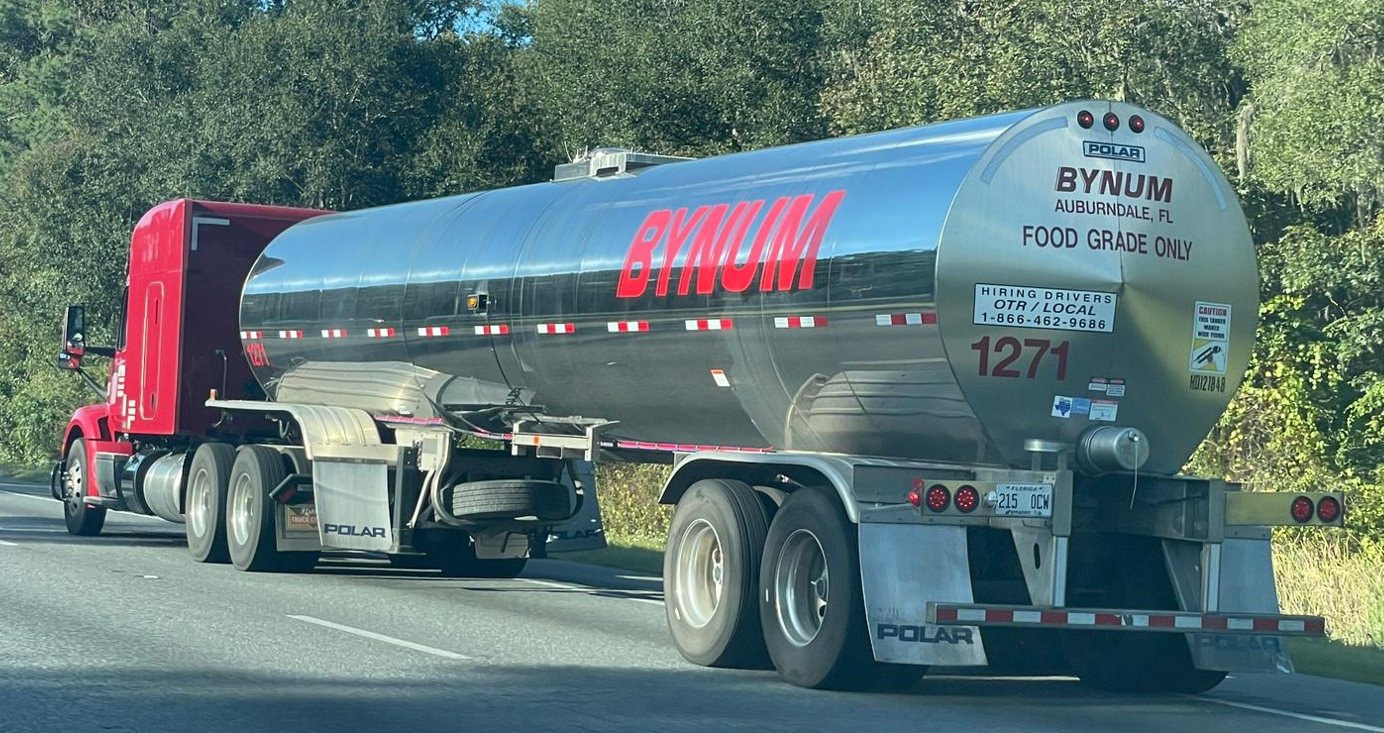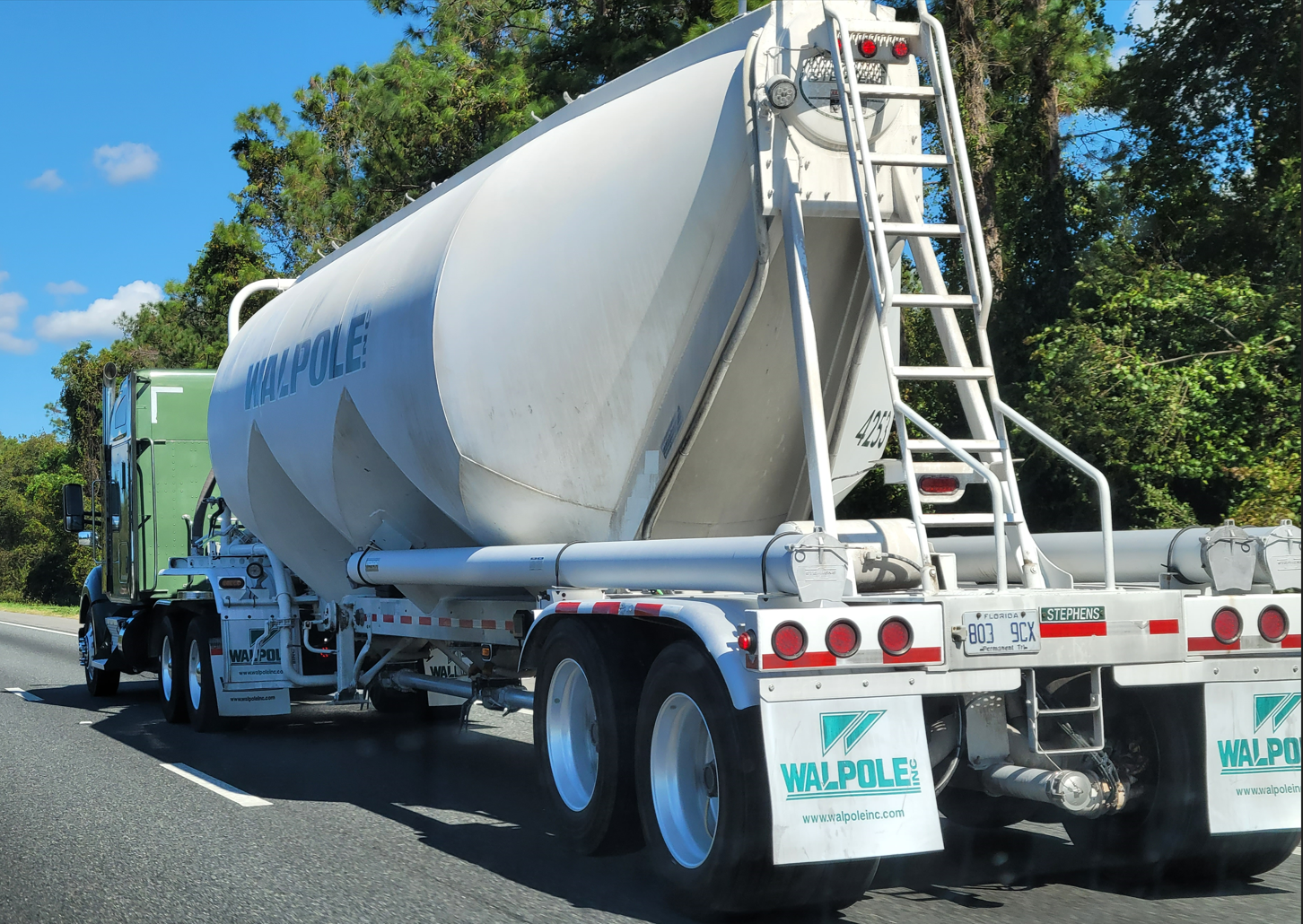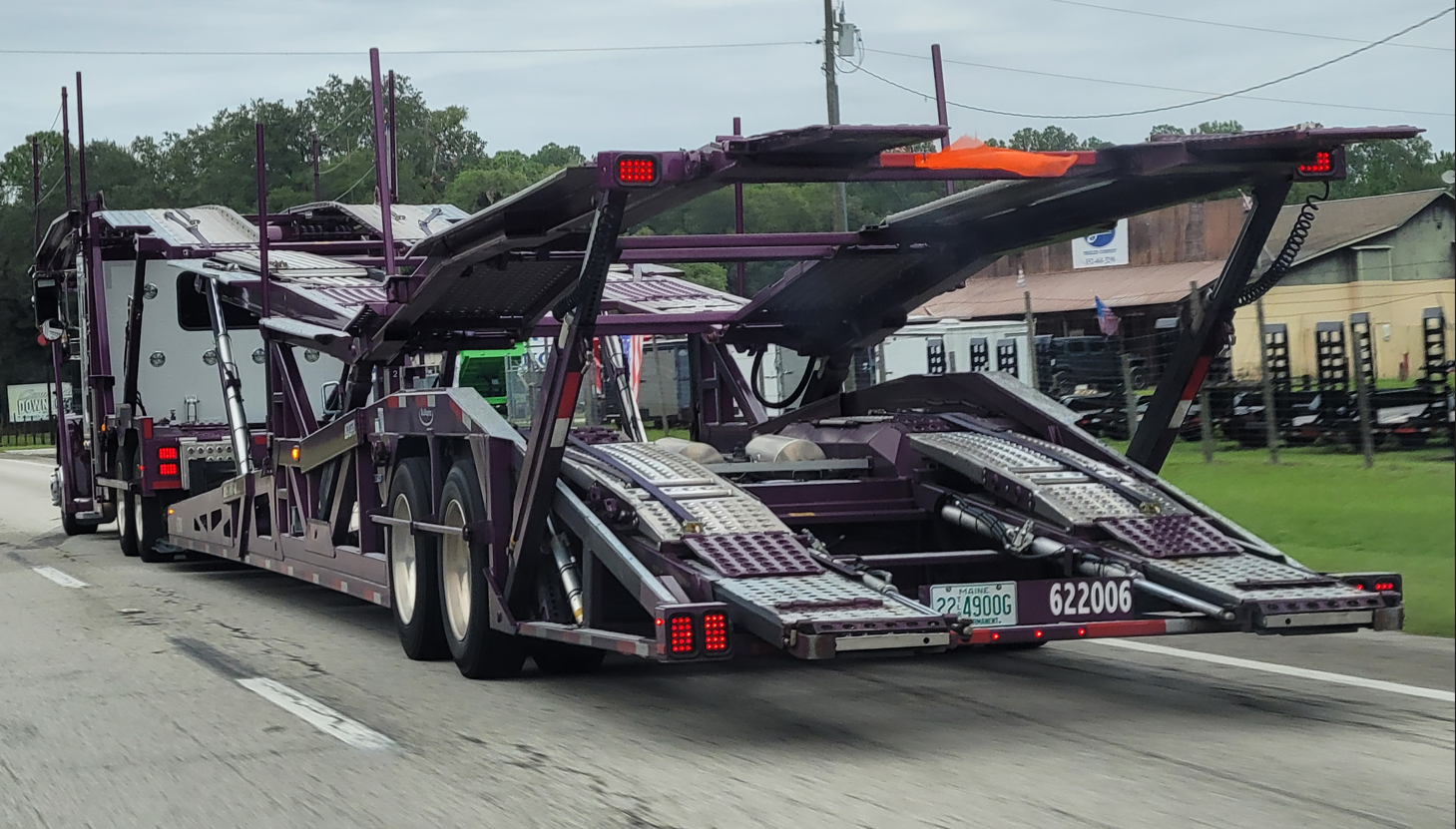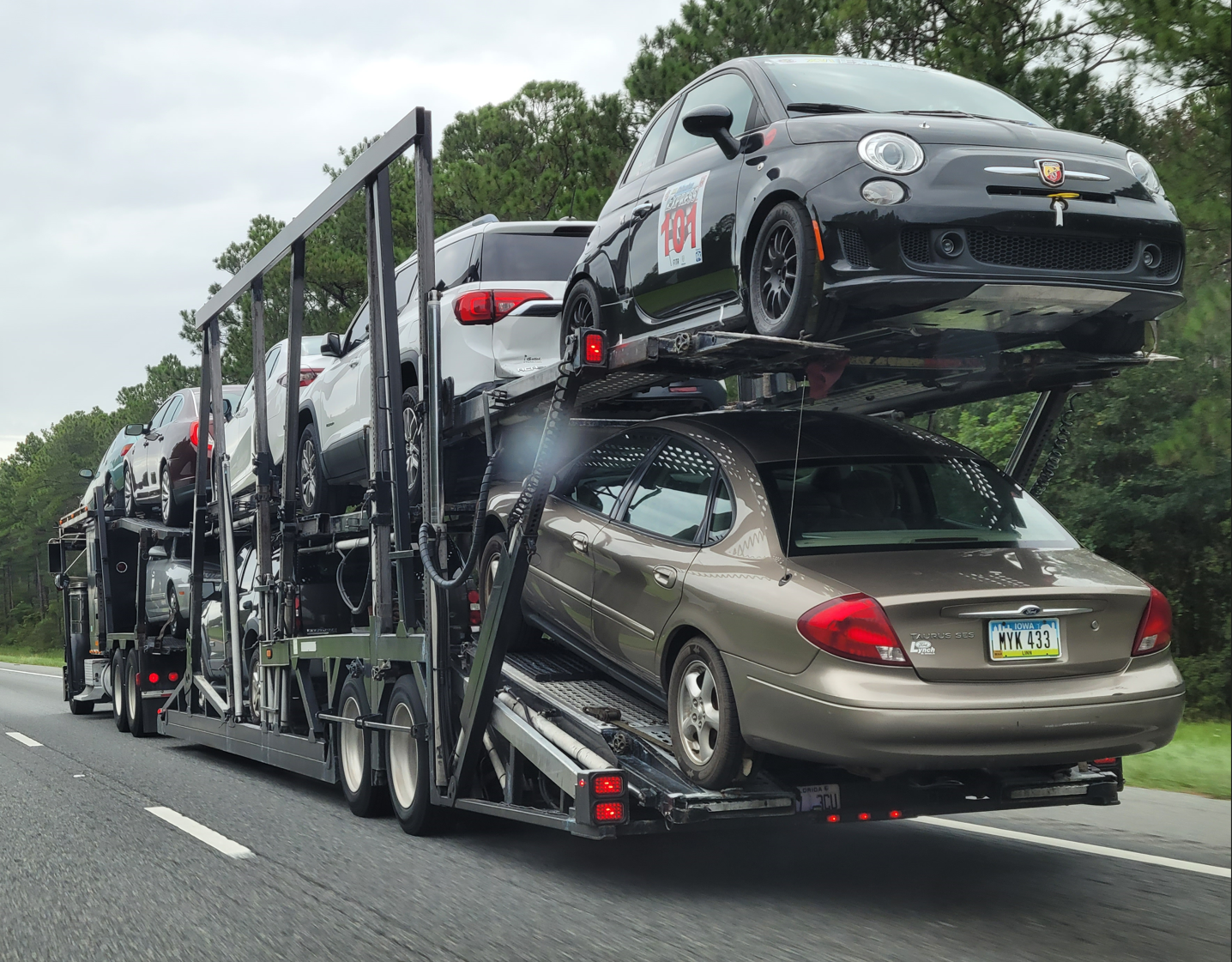2.3 Semi-Trailer
A semi-trailer does not include a front axle. Commonly used trailer types include the following:
Box Trailer (Dry Van Trailer)
- Fully enclosed
- Typical cargo: non-perishable goods, construction-related products, and cargo that does not require temperature control
- Typical length: 53 ft

Figure 2.4: Dry Van Trailer
Photo Source: Scott S. Washburn
Intermodal Trailer (Container Chassis)
- Used to transport intermodal shipping containers to and from container depots, seaports, rail yards, and other shipping facilities
- Typical length: 20 or 40 ft cargo container
Flatbed Trailer
- A flat deck with no containment, doors, or roof to enclose loads. Thus, provide considerable flexibility for un/loading and laying out loads.
- Primarily used for shipping construction materials and various equipment. Essentially, any load that does not require protection from weather and other elements can be transported using flatbed trailers.
- Typical length: 48 ft, 53 ft

Figure 2.5: Flatbed Trailer
Photo Source: Scott S. Washburn
Side Curtain Trailer
- Combines the loading benefits of a flatbed trailer with a ceiling, front wall, and rear doors for cargo containment and protection, but allows for side loading.
- Used to transport consumer goods, lumber, etc.
- Typical length: 40 ft
Refrigerator Trailer (Reefer Trailer)
- Equipped with a built-in temperature control system and insulation to protect temperature-sensitive shipments
- Typical cargo: Food (meat, fish, dairy, etc.), Pharmaceuticals, and similar
- Typical length: 48 ft, 53 ft
Tanker Trailer
- Cylindrical design and used to carry liquids
- Typical cargo: Petrochemicals, dry food, beverages, asphalt
- Typical length: 53 ft

Figure 2.6: Tanker Trailer
Photo Source: Scott S. Washburn
Dry Bulk Trailers (pneumatic tankers)
- used to transport dry goods, such as flour, maize, cement, sand, and similar commodities. These tankers are fully enclosed and vacuum-sealed to prevent any type of leakage.
- Typical length: 20 ft, 40 ft

Figure 2.7: Tanker Trailer
Photo Source: Scott S. Washburn
Lowboy Trailer
- Features a very low deck. The primary purpose of this trailer type is to transport tall equipment or cargo without the need to obtain height permits.
- Typical cargo: Large equipment and machinery, Lowboys are generally used to transport oversized materials from mining sites, bulldozers, heavy machinery, large vehicles, and excavators.

Figure 2.8: Flatbed Trailer
Photo Source: Scott S. Washburn
Car Carrier Trailer (Car Hauler Trailer)
- Typical cargo: Automobiles (Sedans, SUVs, pickup trucks, etc.)


Photos Source: Scott S. Washburn